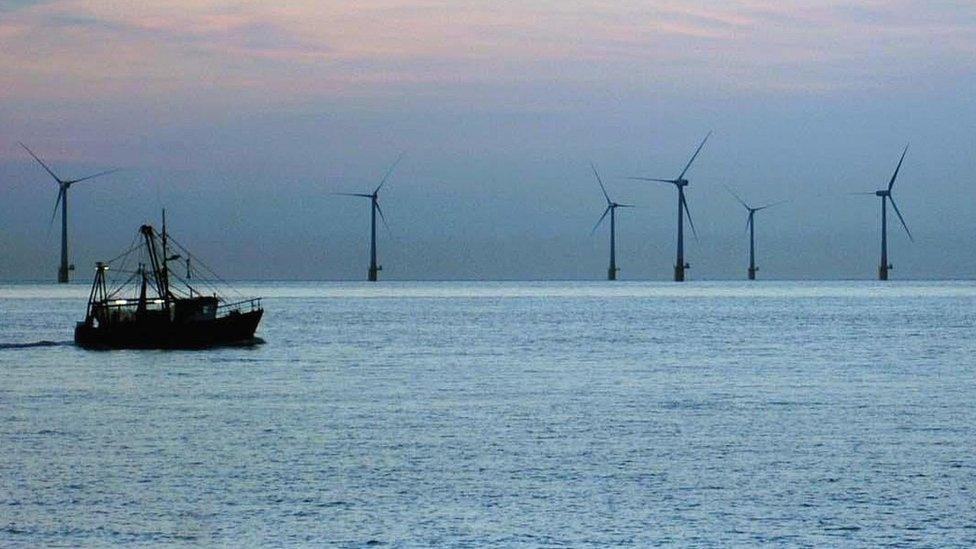Anti-substation campaigners in Suffolk will continue to fight plans
- Published
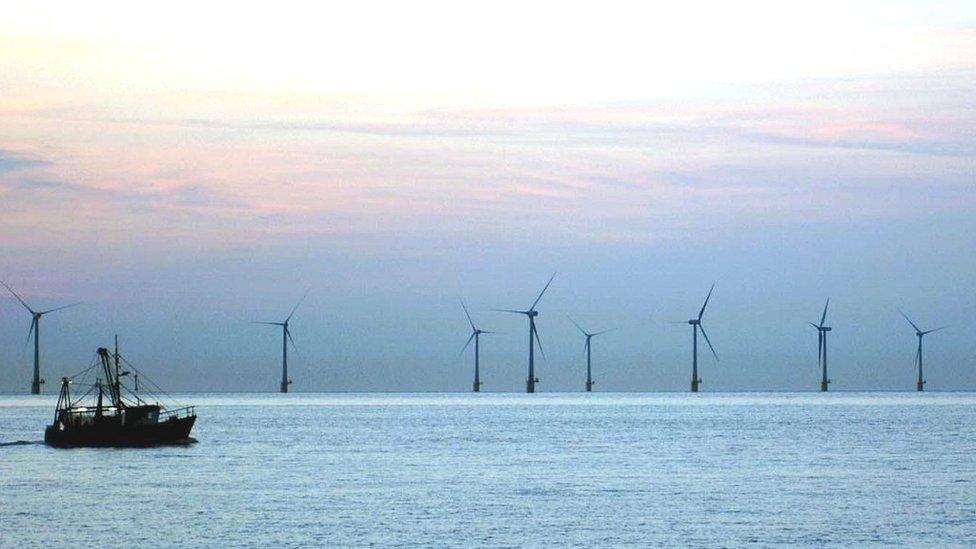
New substations and pylons are needed to serve the major wind farms off the coast of Norfolk and Suffolk
Campaigners have said they will continue to fight against plans for an electricity substation to be used to bring offshore wind power energy from the East Anglian coast.
It follows the National Grid Electricity System Operator (ESO, external) report that examined ten different options for bringing ashore the power created by wind farms.
Every option envisaged the need for a new substation in Friston, Suffolk. Yet some removed the need for new pylons and infrastructure in parts of the region such as Norfolk and Essex.
One campaigner called the study "flawed", while the MP for Suffolk Coastal, Thérèse Coffey, called the plans a "nightmare" for residents.
Ms Coffey added that greenfield sites were not the right place for such infrastructure.
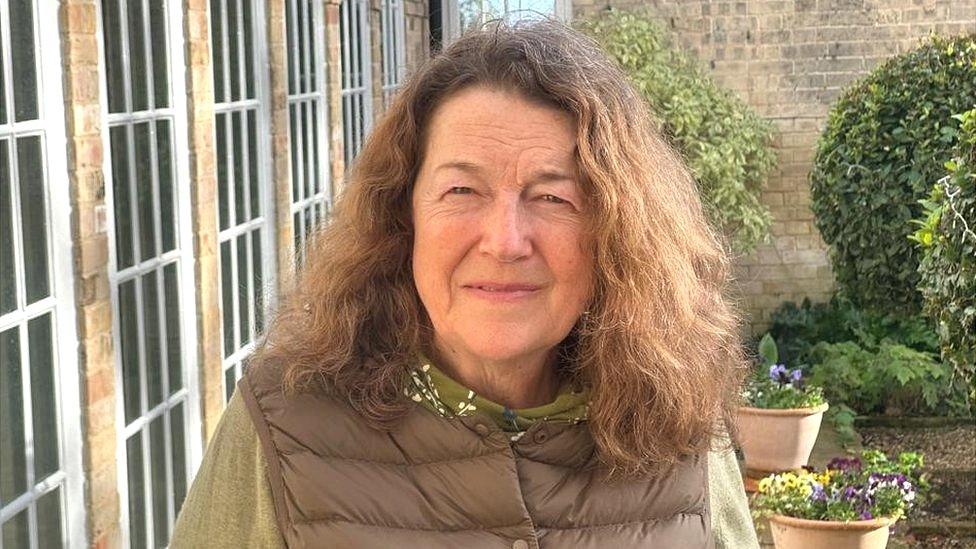
Fiona Gilmore says the building of the substation could cost the local tourism economy £1bn
Fiona Gilmore, a spokeswoman for the campaign group Suffolk Energy Action Solutions, who lives near Friston, told BBC Politics East: "The study published this week is flawed, it is too narrow in scope and is not looking at the socio-economic impacts properly."
"The tourism impact [of a substation in] Friston - three miles from Aldeburgh - will lose us £1bn over the 12 to 15 years of construction because people will no longer want to come to this area."
Ms Gilmore added that she believed the regulator Ofgem had started to listen to the concerns of residents. It has recently published a report, external that suggested putting cabling out at sea and using brownfield sites closer to London for substations.
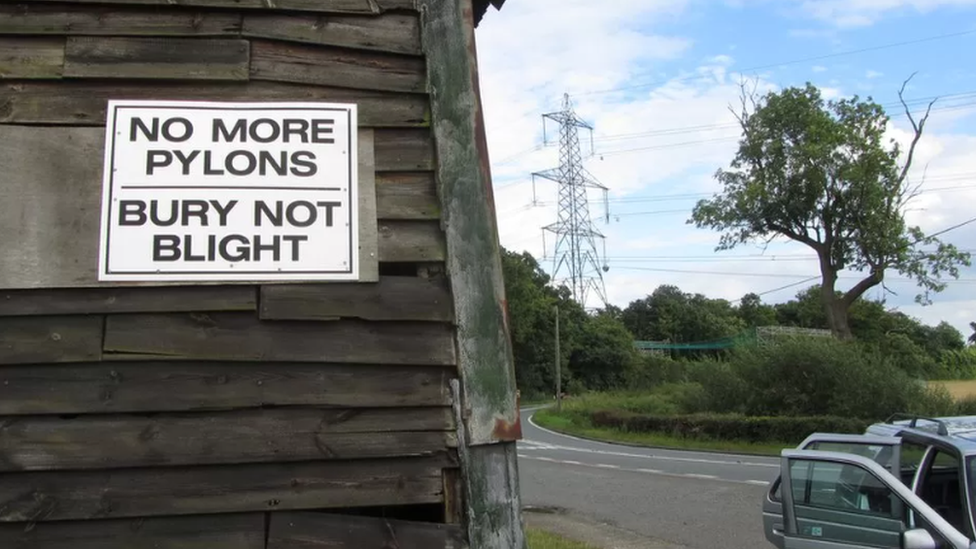
Some campaigners want underground cables to be used over pylons
Ms Coffey, who recently served as environment secretary, told the programme: "I am concerned that this beautiful part of Suffolk - which is important for tourism and for farming and food security - is being threatened.
"I am conscious we have had a nuclear site for some time and I am not deaf to the concerns people have raised about that.
"But this in my view is completely unnecessary infrastructure [such as a substation at Friston] in this part of Suffolk Coastal that could go readily elsewhere."
'Difficult trade-offs'
The report's author Jake Rigg, a corporate affairs director at National Grid ESO, said: "Our conclusion essentially is that there is no silver bullet.
"I have been out there personally to those places and listened to the communities and seen how they would be affected and obviously that isn't something anyone wants to see.
"But equally there are these really difficult trade-offs that need to be balanced with each other, part of this is legislation to decarbonise the power system by 2035.
"We absolutely need the wind farms that are off the coast of East Anglia to be able to generate power and bring it onshore in a cost-effective way."
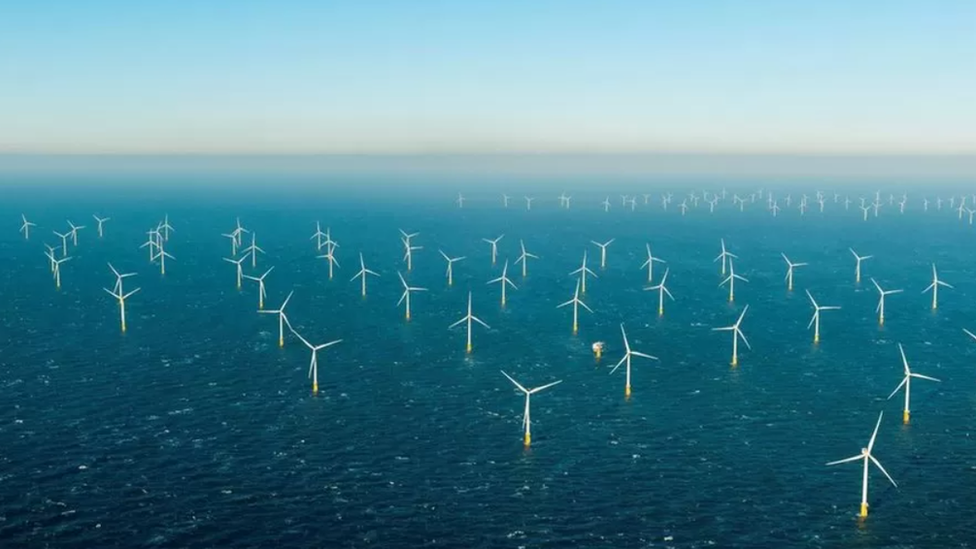
The report's author, Jake Rigg, say there is no "silver bullet" to the problem
National Grid said it would use the ESO report to decide whether to amend its existing proposals.
It said the electricity network in East Anglia "doesn't have the capability needed to reliably and securely transport all the energy that will be connected by 2030".
Nearly 20 wind farms have been planned for, or are already functioning, off the East Anglian coast.
Plans for a new nuclear power station in Sizewell, Suffolk, have been awaiting a final investment decision, but the project has received development consent.
BBC Politics East will be broadcast on Sunday, 17 March at 10:00 GMT on BBC One in the East of England, and will be available after broadcast on BBC iPlayer.

Follow East of England news on Facebook, external, Instagram, external and X, external. Got a story? Email eastofenglandnews@bbc.co.uk, external or WhatsApp us on 0800 169 1830
Related topics
- Published13 March 2024
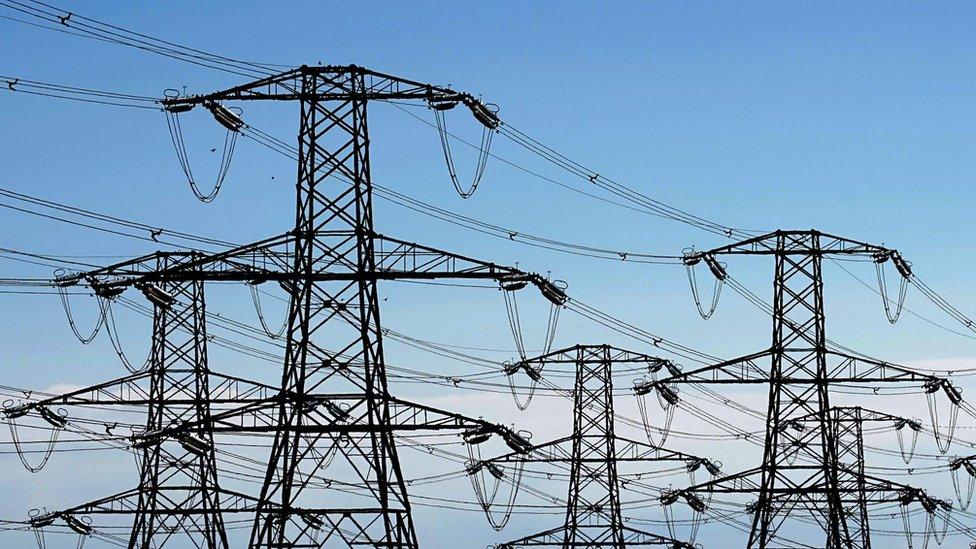
- Published12 March 2024
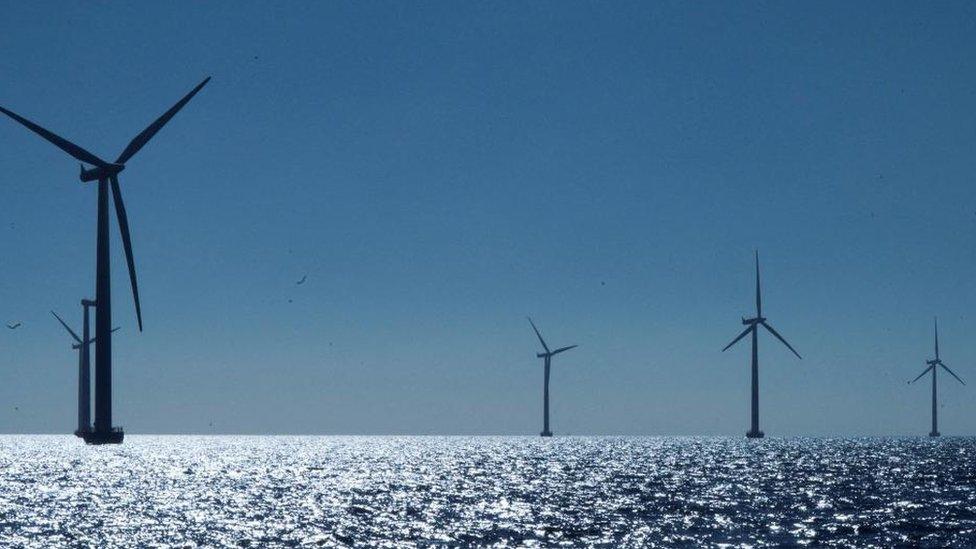
- Published24 June 2023
